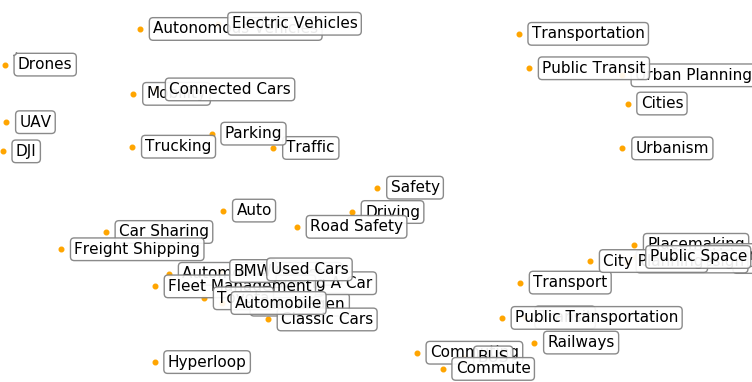Mapping Medium’s Tags - Medium Engineering

my notes ( ? )
represent each tag by a vector of numbers in a multi-dimensional vector space...find the meaning of these thousands of tags in a way that can represented by vectors ... I pretended each post’s tag list was a “sentence” ... fed into a training algorithm which usually takes real sentences... it figures out a tag’s vector values by looking at the tags that are used along with it ... these kinds of vectors are also known as “embeddings”...
the dimensions work in concert to represent information about the tags... we can find tag vectors that are close to each other... We can also do arithmetic on our vectors... eg average the “Tech” vector with “Education” to land in the vicinity of EdTech tags... We can also solve analogies... essentially "Education" is to "EdTech" as "Agriculture" is to _"... We can also plot the tag vectors... interpreting them as points in space... a myriad of ways to do this “dimensionality reduction”...
identify duplicate tags and normalize them... solve other prediction problems with machine learning... these “dense” expressive vectors ... should improve the algorithms’ ability to predict...
Here are some things we’d need to consider... “word-sense disambiguation”... De-biasing embeddings... Associating tags across languages... train a cross-lingual model that embeds the tags from both languages in a shared vector space, so they could be directly compared...
Read the Full Post
The above notes were curated from the full post medium.engineering/mapping-mediums-tags-1b9a78d77cf0.Related reading
More Stuff I Like
More Stuff tagged word2vec , tag , machine learning , semantic , nlp
See also: Content Strategy , Digital Transformation , Science&Technology , Business